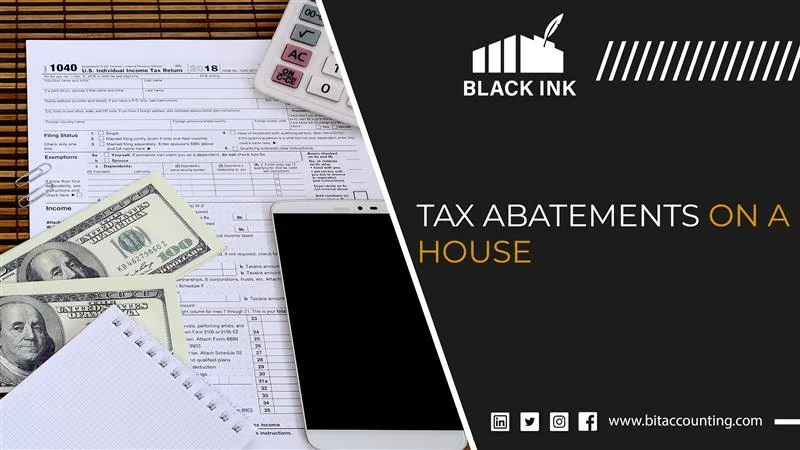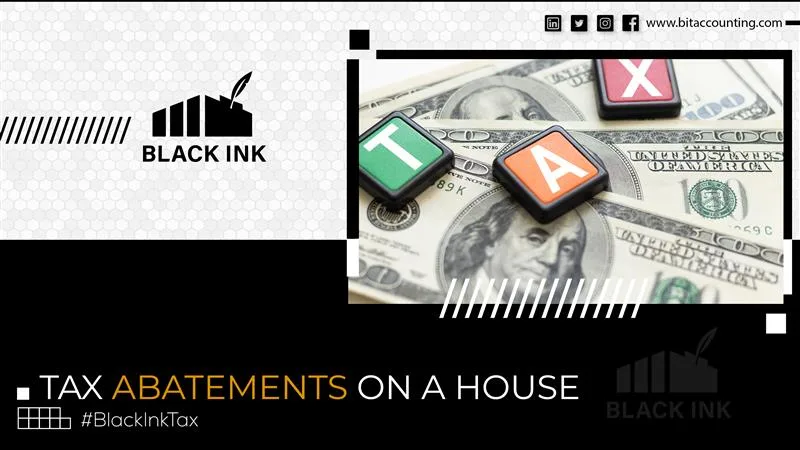
Table of Contents
The Ultimate Guide For Tax Abatements On A House
Paying property taxes is just part of owning a home, but many people don’t realize there are ways to lower those costs. Property taxes help fund public services like schools, roads, and emergency services. However, they can also be a financial burden, especially for families on a tight budget. This guide will walk you through how tax abatements on a house can give homeowners like you a break.
Tax abatements are a form of financial relief from the government. They can make homeownership more affordable and give communities a boost by encouraging investment and development. If you’ve ever wondered how you could pay less in property taxes, you’re in the right place.
We’ll cover what tax abatements are, how they work, different types available, how to apply, and how to overcome common challenges. You’ll also learn how to make the most out of these tax breaks.
What Does A Tax Abatement On A House Mean?
A tax abatement on a house is when the local government lowers or freezes your property tax bill for a certain period. It’s not the same as a tax exemption (which removes taxes completely) or a deduction (which reduces taxable income). Abatements reduce your actual tax bill, either temporarily or permanently.
Laws about tax abatements vary depending on where you live, which means each city or state has its own rules. Some offer full relief for a few years, while others cut the bill in half for a longer time. These policies are often used to attract new homeowners or encourage property improvements.
Common types of abatements
- Temporary abatements: Provide relief for 5–10 years
- Permanent abatements: Last as long as you meet certain conditions (like low income or age requirements)
How Do Tax Abatements On A House Work?
Local governments decide who qualifies for tax abatements. They use them as tools to support public goals, such as boosting economic development or preserving historic homes.
Eligibility often depends on
- Income Restriction: Lower-income families may qualify more easily
- Type of property: Primary residences get preference over second homes or rental units
- Location: Homes in certain neighborhoods (like urban renewal areas) might be more eligible
Some programs only last a few years, while others can offer help for decades. Either way, tax abatements can save homeowners thousands of dollars.
Benefits of Property Tax Abatements
Tax abatements offer real, immediate savings for many families. Here’s why they matter:
- Lower tax payments: That means more money stays in your pocket
- Encourage home upgrades: Some abatements reward you for making improvements like energy-saving windows or fixing up an older home
- Help vulnerable groups: Many programs support seniors, people with disabilities, and low-income households
They also help communities by promoting investment and reducing urban sprawl. When more people can afford to stay in their homes, entire neighborhoods benefit.
Types of Tax Abatements On A House
Here are the types of tax abatements on a house:
Homestead Exemptions
Homestead exemptions lower the taxable value of your main home. If you live in the house full-time, you could qualify.
To apply:
- Provide proof you live there (a utility bill, ID, or lease)
- File an application with your local tax office
Every state has different rules. For example:
- Texas offers a flat dollar exemption
- Florida subtracts a portion of your home’s value
Senior Citizen & Disability Abatements
Many states offer extra help if you’re over a certain age or have a disability.
Common requirements:
- Age 65 or older
- Disability certification from a doctor or agency
- Income limits apply in most cases
Examples:
- New Jersey offers both property tax deductions and rebates
- Ohio has a homestead exemption just for seniors and disabled homeowners
Veteran & Military Tax Abatements
If you’re a veteran, active-duty service member, or have a service-related disability, you may qualify for special programs.
Some states offer:
- Full exemptions for disabled veterans
- Partial exemptions based on service status
- Additional relief for surviving spouses
Tip: You’ll usually need documents from the VA and military service records.
Renovation & Rehabilitation Abatements
Upgrading your home? You might get a tax break for it.
These abatements encourage homeowners to:
- Make energy-efficient improvements
- Restore historic homes
You’ll need to:
- Submit receipts and permits
- Prove the value added by the improvements
Economic Development & Disaster Relief Abatements
Governments sometimes offer abatements to encourage people to move into specific neighborhoods or to recover after disasters.
Examples include:
- Urban infill zones: Places with many empty lots or abandoned buildings
- Post-disaster zones: Areas hit by hurricanes, wildfires, or floods
Some cities offer 10-year abatements to draw new residents and revive local economies.

How to Apply for a Tax Abatement On A House
The following are the steps to apply a tax abatement on a house:
Step#1: Researching Local Abatement Programs
Start by checking your city or county assessor’s website. State government sites are also helpful.
Look for:
- Application deadlines
- Program guidelines
- Contact info for questions
Consider speaking with a tax professional to avoid missing key details.
Step#2: Gathering Required Documentation
Before applying, collect these items:
- Proof of ownership (like a deed or lease)
- Tax returns or pay stubs (to show income)
- Special documents (military ID, disability certificate)
Step#3: Filing the Application
You may apply online or in person. Follow these steps:
- Download or fill out the application
- Attach required documents
- Submit before the deadline
Avoid mistakes like:
- Incomplete forms
- Missing proof of income
- Late submission
If you’re denied, ask for an appeal. Many places allow a second chance.
Common Challenges & How to Overcome Them
Here are the common challenges you could encounter while applying for tax abatement on a house. Also, ways to overcome them:
Denied Applications – Reasons & Solutions
Applications get denied for many reasons:
- Missing paperwork
- Not meeting income or age rules
- Property doesn’t qualify
What to do:
- Double-check the requirements
- Gather proper documents
- Appeal if needed
Changing Laws & Expiring Abatements
Tax laws change often. Some programs expire or shrink over time. Stay informed by:
- Signing up for tax office updates
- Talking to local government reps
- Reapplying when needed
Scams & Misinformation
Beware of people who promise big tax breaks for a fee.
Warning signs:
- Requests for payment upfront
- No clear contact info
Trustworthy sources include:
- County assessor offices
- State government websites
- Reputable firms like BIT Accounting
Maximizing Your Property Tax Savings
Here is how to maximizing your property tax savings:
Combining Abatements with Other Tax Breaks
Stack benefits when you can:
- Use a homestead exemption plus a senior discount
- Pair renovation abatements with energy-efficiency credits
Long-Term Tax Planning for Homeowners
Think ahead:
- Reassessments can raise your tax bill once abatements end
- Downsizing might reduce your tax rate
- Appealing assessments can also lower future taxes
State-by-State Comparison of Best Abatement Programs
Top states with strong programs:
- New York – STAR Program
- California – Prop 13 and veteran discounts
- Texas – Homestead and disabled vet exemptions
- Florida – Generous senior exemptions
- Indiana & Pennsylvania – Historic and low-income support
Conclusion
Understanding tax abatements on a house can save you a lot of money and make owning a home more affordable. Whether you’re a senior, veteran, low-income family, or someone renovating a property, there’s likely a program out there for you.
These abatements aren’t just about tax savings—they’re about improving communities, encouraging economic development, and supporting public policy goals. For professional help, contact BIT Accounting, where experts can guide you through every step.
FAQs
1: What’s the difference between a tax abatement and a tax exemption?
An abatement reduces your tax bill temporarily, while an exemption removes it completely in some cases.
2: Can I get more than one type of abatement?
Yes, in many states you can combine programs like homestead and senior discounts.
3: Do abatements affect home value?
They don’t change your property’s market value but can make it more attractive to buyers.
3: Are tax abatements only for low-income families?
Not always. Some are based on location, home improvements, or service status (like military).
4: Where can I find more help?
Visit your local tax assessor’s website or contact a firm like BIT Accounting for personalized support.
GET FREE QUOTE FOR ALL OF OUR SERVICES
Black Ink will send you a free analysis of your current state and what would be the cost of managing either a separate accounting and bookkeeping services or a complete solution across New York, USA. Do get in touch and we will be happy to consult you with our bookkeeping services in NY, New York, USA.
